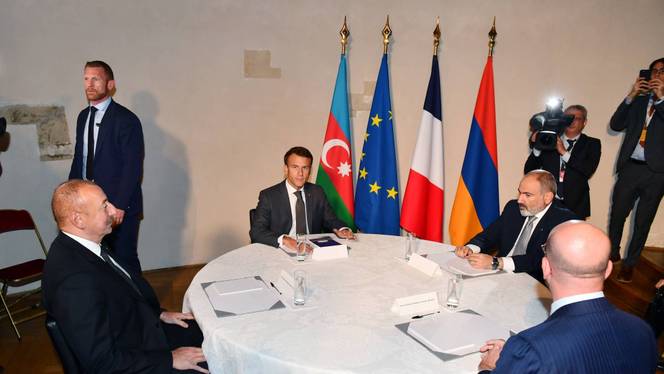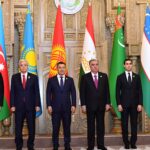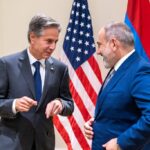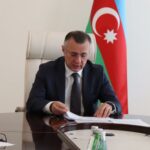The South Caucasus is witnessing positive developments towards regional peace and stability, after Armenia and Azerbaijan recently reached a confidence-building agreement to mutually release detainees — two Azerbaijanis and 32 Armenians — respectively.
Following the development, the Turkish Foreign Ministry said in a statement, “We wish for the prompt signing of the peace agreement between Azerbaijan and Armenia, which will constitute one of the most crucial developments for the establishment of permanent peace and stability in the South Caucasus.”
However, the way to peace has blind spots, with Armenia promoting activities of militant groups, and France provoking further conflict by militarising Armenia, both of which have hampered the process in the past.
Turkish President Recep Tayyip Erdogan criticised France last Friday for providing armoured vehicles to Armenia, saying, “This is provocation. France should know they are not doing good to Armenia, but doing wrong.”
Although experts believe peace will eventually prevail on both sides, France’s involvement is muddying Armenia’s intent, and could have a negative effect on the peace negotiations.
The experts also commented on the reasons behind this involvement, and Türkiye’s position on regional peace.
‘Greater France’
It starts with France’s ambition for a ‘Greater France’, according to Mehmet Seyfettin Erol, Professor of International Relations at the Ankara Center for Crisis and Policy Studies (ANKASAM).
‘Greater France’ ideal refers to discourse existing in French circles during World War I that tried to justify and publicise French colonial activities.
“It falls under France’s colonial aspirations and fears of losing its ‘sphere of influence’ in the Middle East, the Mediterranean and Africa,” he tells TRT World.
The problem lies with the fact that over a hundred years down the line, France is still not ready to lose its soft power over its colonial domains in the region, according to Anar Valiyev, Professor of Public Administration at ADA University in Baku.
From colonial past to present: The struggle for identity in France
He explains that France can’t come to terms with the fact that it isn’t a colonial power anymore, causing what is called ‘the crisis of the middle country’. Hence, it wants to emerge as a power broker.
However, Valiyev adds that the French government lacks this ability, as President Emmanuel Macron completely misunderstood the region.
He tells TRT World that France is now seen as more of a joker, since it neither has the military nor the economic power it had in the past.
The situation is aggravated by its exclusion from the AUKUS pact (trilateral security treaty between Australia, the UK, and the US) of 2021, reducing it to ‘an unwanted actor’ in the West.
The process of devaluing France as a significant actor led the country to try to gain some influence by rivalling Türkiye, which is a successful player in the region, says Erol.
What is Türkiye’s position?
Türkiye is arch-rival to France in many regions, including the Balkans, Libya and Algeria, and lastly South Caucasus, explains Valiyev.
This is because of the Turkish help to Azerbaijan, which has made a great impact on the liberation of Karabakh, according to experts.
Because of Turkish backing, 30 years of deadlock over the Karabakh issue, and the failure of the Minsk group, has given way to the current environment of peace, Altay Goyushev, Professor of Turkic history at Baku State University, tells TRT World.
In the first Karabakh War, Armenian militant groups occupied the enclave of Karabakh, which is an internationally-recognised territory of Azerbaijan.
After the war, the Minsk Group was created to lead a peaceful resolution for the conflict between Azerbaijan and Armenia.
Why the Minsk Group is unable to address the Azerbaijan-Armenia conflict
In March 2008, the UN’s Security Council adopted a resolution to demand the withdrawal of all occupying forces of Armenia, however it has not been implemented, as the co-chairs of the OSCE Minsk Group, Russia, France and the United States, have vetoed it.
In the second Karabakh War of 2020, Ankara supplied combat drones to Azerbaijan to liberate Karabakh. “The gap that was created by the ineffective policies of the West, leading to a ‘frozen conflict’ lasting 30 years, was filled by Türkiye,” Leila Alieva, lecturer at University of Oxford, tells TRT World.
“Everybody understands that the Azerbaijani victory in the war happened due to the assistance of Türkiye. It’s not just military or political assistance, but its deterrence against Russia,” says Goyushev.
He refers to the fact that Russia was not involved in 2020’s war, although it has always portrayed itself as the protector of Armenians.
As the Second War proves, settlement without Türkiye was not possible, and Azerbaijani political leadership is more dependent on Türkiye than any other country in the region, Goyushev says.
“Türkiye can actually start the process of normalisation with Armenia, without any repercussions from the Azerbaijani side,” he adds.
Exclusion of Türkiye from Granada meeting
After the war, official peace talks did not take place immediately. At the beginning of October, Aliyev refused to attend the meeting on the settlement over Karabakh in Granada, initiated by Macron, due to the pro-Armenian statements by French officials.
Following his October 3 visit to Yerevan, French Foreign Minister Catherine Colonna said that Paris had agreed to deliver military equipment to Armenia, without elaborating more.
Meanwhile, Azerbaijan wanted to include Türkiye and Spain in the meeting that included leaders of Germany, France and the EU, but this was strongly opposed by Germany and France.
“France wants to keep Azerbaijan within the reach of the European Union,” Goyushev claims.
Last of all, a meeting planned in Washington on November 20 was cancelled by Azerbaijan’s President İlham Aliyev due to pro-Armenian statements made by US officials.
Azerbaijan president refuses to attend EU-brokered meet over snub to Türkiye
Leila Alieva explains the deadlocks in the process initiated by the West in a historical context, saying that during the 2020 conflict in which Azerbaijan ‘attempted to liberate its territories’, France came up with very strong pro-Armenian statements.
However, during the First War, in which Azerbaijani territories were occupied in 1988, which continued till 1994, although there is ethnic cleansing as seen in Khojaly, displacement of nearly a million people, and destruction of cultural heritage, there was no statement from the West supporting Azerbaijan.
In light of this context, most of the European actors are perceived by Azerbaijan as biassed in favour of Armenia, which makes Azerbaijan feel unsafe by the exclusion of Türkiye from the mediation process, she says.
She adds, “Azerbaijan would feel the process is fairer if there was at least one actor in its favour, to stand up against many pro-Armenian actors already involved, which would sort of balance the mediation.”
Also, the failure of the Minsk Group to initiate peace between the two countries lies in the fact that France is a partisan actor, and a representative of Europe, she further adds.
Erol expresses similar misgivings, saying, “On the one hand, France is part of the Minsk Group. On the other, it is militarising Armenia. This is what is perpetuating the deadlock.”
“How they act is by ‘securitising’ the issue, as if there is an imminent threat to Armenians, regardless of what the interests and objectives of neighbouring states like Azerbaijan and Türkiye are.
In the end, this contributes to the confrontation,” Alieva says.
Ayse Isin Kirenci is an associate producer at TRT World.










